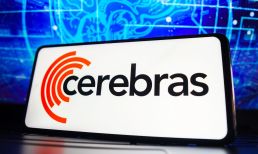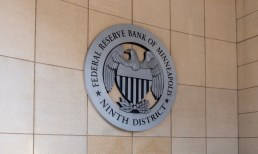According to Product Drops: Retail’s New Conversion Play, a collaborative survey of 2,300 U.S. consumers done by PYMNTS and Scalefast, not only are these typically young consumers loyal and eager to spend, but they’re excited enough to wait in line to get access to a brand they love.

While the concept of retailers and manufacturers doing limited edition promotions is not new, the refreshed, three-pronged 21st-century version is definitely trending right now.
According to the survey, 75 percent of shoppers who attended a special product drop event said they were “very” or “extremely” satisfied with the experience.
Similar 70-plus percent enthusiasm levels were also reported with flash sales and private sales, with nearly half of respondents saying they had taken part in one of these types of buying events within the past month.
The Hype Is Everywhere
Advertisement: Scroll to Continue
Of course, happy customers make happy retailers, so it is probably no surprise that these types of events are becoming increasingly popular, especially among young, digitally native shoppers who are looking for unique, high quality, branded products. In fact, the concept has even taken on its own codename — Hypes — and spawned a website devoted to promoting the latest streetwear fashion and upcoming events.
A recent headline of “8 Drops You Don’t Want to Miss This Week” was atop an article by Hypebeast, a hip website that focuses on a dozen different categories, including fashion, footwear, tech and music.
An example of the multi-branded, limited edition merchandise typical of a modern product drop is the jacket, hoodies and football ensemble offered to commemorate the Weeknd’s halftime performance at the Super Bowl in Tampa Bay.
To bring just this one promo to life, no less than seven different entities were involved, including The Weeknd, the National Football League, Jay-Z’s entertainment business Roc Nation and Universal Music Group’s merchandise division, Bravado, as well as Wilson sporting goods and designers Jeff Hamilton and Warren Lotas.
Outgrowing Clothing
While dominated by clothing and fashion, the success of these hybrid marketing/loyalty events has spread well beyond apparel, and is now being deployed by electronic device makers, video games and appliances.
In fact, when it comes to spurring big-ticket purchases, the study revealed that appliances topped all other segments, with an average purchase price of $527, followed by $424 on auto parts and accessories.

As far as why consumers seek out and go to these hyped shopping events, the survey showed a variety of reasons, ranging from “they’re fun” to a desire to avoid stores or gain access to high quality or difficult to find products.
However, more than anything else, 7 in 10 consumers said they went to these sales events because they offered good deals.
While the idea of “value” is hard to pin down, one of the most successful purveyors of these promos is Supreme, a legacy skateboard shop brand that was acquired last fall for $2.2 billion by VF Corp., the Colorado-based apparel company that owns more than a dozen major brands.
The New Loyalty
“The irony of most of today’s customer loyalty programs is that they aren’t about loyalty at all,” said brand strategist and author Ana Andjelic in a recent column in the Harvard Business Review. “They have more to do with an economic transaction than with true affinity for a brand,” she added.
While countless companies are willing to give some sort of a discount or coupon in exchange for a customer’s email address, Andjelic said this type of “bribery” does little to create brand devotion or excitement.
According to Joe Farrell, managing director, EU Operations, at branding and commerce adviser PFSweb, it takes more than trendy merchandise to win at this game. For example, Farrell said brands should also consider things like pop-up distribution centers to spread inventory and avoid delays, or launch hybrid stores that reallocate idle space and in-store retail staff.
Last week, Seattle-based upscale department store Nordstrom said it was phasing out the HauteLook brand it bought in 2011 but folding its flash sales into its existing discount platform, Nordstrom Rack.
“True loyalty is emotional and irrational and leads to customers feeling like they’re part of an exclusive membership group which then leads them to become loyal subscribers or consumer network participants,” Andjelic said. “People appreciate being part of a club — and feel badly when they’re not.”






